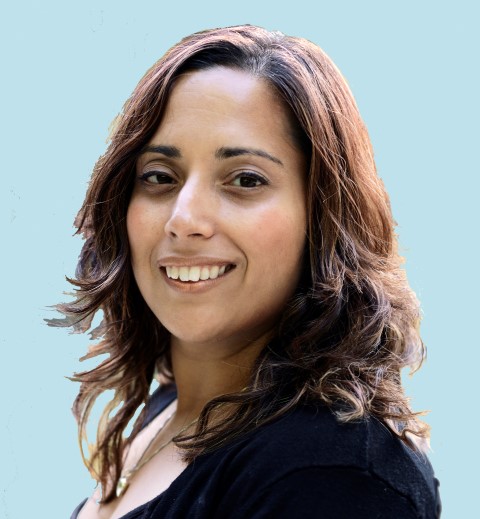Vortrag
 |
Sapna Sehgal A talk for the ↗︎ Virtual Laboratory August 11, 2020, 16:00–17:30 Access to the ↗︎ virtual room without registration |
Abstract
Study abroad (SA) literature has shown that the SA context generally allows learners to improve their L2 oral fluency, although some become more fluent than others in the same program (see Collentine & Freed, 2004; Martinsen, Baker, Dewey, Bown & Johnson, 2010; Briggs, 2015). A cognitive science approach to fluency allows to explore the underlying cognitive processes (cognitive fluency) contributing to speech skills development and to address individual differences in L2 fluency (Segalowitz, 2016; Segalowitz 2010).
52 American English learners of Spanish studying abroad completed L1 and L2 narrative speech elicitation tasks, three inhibitory control tasks, a vocabulary test, and a questionnaire at the beginning and end of their stay. The talk presents the results of this study and focus on two aspects:
- changes in L2 utterance fluency (speed, silent pausing behaviour, filled pauses, elongations, repairs, repetitions) and
- cognitive factors of L2 oral fluency development. Cognitive fluency is measured by inhibitory control – the ability to suppress one action while performing the other. Speakers suppress L1 information when speaking the L2. While cognitive skills such as working memory have been previously explored in the SA context, inhibitory control is largely unexplored.
Contrary to expectations, few fluency gains were found. Inhibitory control ability was generally not shown to change at post-test, although a language switching task did show participants switched faster into Spanish at post-test than pre-test. Results show no significant relationship between performance on inhibitory control tests and fluency gains for most measures. Possible interpretations of the result point to the importance of understanding the individual L2 learner’s experience in study abroad programs. Research on multiple aspects of cognitive fluency is needed to fully understand the mechanisms behind L2 oral fluency development and explain individual differences in L2 speech.
Bio
Sapna Sehgal completed her MSc in Applied Linguistics and Second Language Acquisition at the University of Oxford (2013), where she investigated speaking fluency development for L2 learners of French on short, intensive study abroad programs in France. She also holds a Postgraduate Certificate in Teaching ESL from McGill University (2011) and a BCom from the University of Alberta in Canada (2007).
Her current research focuses on individual differences in the development of L2 oral fluency in the study-abroad context for L1 English learners of Spanish, with a focus on inhibitory control and study abroad experience factors.
Recommended literature
Inhibitory control in L2 acquisition and bilingualism
Darcy, I., Mora, J. C. & Daidone, D. (2016). The Role of Inhibitory Control in Second Language Phonological Processing. Language Learning. doi:10.1111/lang.12161
De Bruin, A., Roelofs, A., Dijkstra, T. & Fitzpatrick, I. (2014). Domain-general inhibition areas of the brain are involved in language switching: fMRI evidence from trilingual speakers. NeuroImage, 90, 348–59.
Linck, J. A., Hoshino, N. & Kroll, J. F. (2008). Cross-language lexical processes and inhibitory control. The Mental Lexicon, 3(3), 349–374.
Linck, J. A., Schwieter, J. W. & Sunderman, G. (2011). Inhibitory control predicts language switching performance in trilingual speech production. Bilingualism: Language and Cognition, 15(3), 651–662.
Philipp, A. M. & Koch, I. (2009). Inhibition in language switching: what is inhibited when switching between languages in naming tasks? Journal of Experimental Psychology. Learning, Memory, and Cognition, 35(5), 1187–95.
Pivneva, I., Palmer, C. & Titone, D. (2012). Inhibitory control and L2 proficiency modulate bilingual language production: Evidence from spontaneous monologue and dialogue speech. Frontiers in Psychology, 3, 57.
L2 oral fluency
Chambers, F. (1997). What do we mean by fluency? System, 25(4), 535–544.
Collentine, J. (2009). Study Abroad Research: Findings, Implications, and Future Directions. The Handbook of Language Teaching, 218.
Collentine, J. & Freed, B. F. (2004). Learning Context and Its Effects On Second Language Acquistion, 153–171.
Colomé, À. (2001). Lexical activation in bilinguals’ speech production: Language-specific or language-independent? Journal of Memory and Language, 45(4), 721–736.
Costa, A. & Santesteban, M. (2004). Lexical access in bilingual speech production: Evidence from language switching in highly proficient bilinguals and L2 learners. Journal of Memory and Language, 50(4), 491–511.
De Jong, N., Grouenhout, R., Schoonen, R. & Hulstijn, J. (2015). Second language fluency: Speaking style or proficiency? Correcting measures of second language fluency for first language behavior. Applied Psycholinguistics, 36(2), 223–243.
De Jong, N. (2016). Predicting pauses in L1 and L2 speech: the effects of utterance boundaries and word frequency. International Review of Applied Linguistics in Language Teaching, 54(2), 113–132.
Foster, P., Tonkyn, A. & Wigglesworth, G. (2000). Measuring spoken language: A unit for all reasons. Applied Linguistics, 21(3), 354–375.
Grey, S., Cox, J. G., Serafini, E. J. & Sanz, C. (2015). The Role of Individual Differences in the Study Abroad Context: Cognitive Capacity and Language Development During Short-Term Intensive Language Exposure. The Modern Language Journal, 99(1), 137–157.
Huensch, A. & Tracy-Ventura, N. (2017). Understanding second language fluency behavior: The effects of individual differences in first language fluency, cross-linguistic differences, and proficiency over time. Applied Psycholinguistics, 38(4), 755–785.
Mora, J. C. & Valls-Ferrer, M. (2012). Oral Fluency, Accuracy, and Complexity in Formal Instruction and Study Abroad Learning Contexts. TESOL Quarterly, 46(4).
Puri’c, D., Vuksanovi’c, J. & Chondrogianni, V. (2017). Cognitive advantages of immersion education after 1year: Effects of amount of exposure. Journal of Experimental Child Psychology, 159, 296–309.
Segalowitz, N. (2007). Access Fluidity, Attention Control, and the Acquisition of Fluency in a Second Language, 41(1), 181–186.
Segalowitz, N. (2010). Cognitive bases of second language fluency. Routledge.
Segalowitz, N. (2016). Second language fluency and its underlying cognitive and social determinants. International Review of Applied Linguistics in Language Teaching, 54(2), 79–95. doi:10.1515/iral-2016-9991
Segalowitz, N. & Hulstijn, J. (2005). Automaticity in bilingualism and second language learning. Handbook of Bilingualism: Psycholinguistic Approaches, 371–388.
Tavakoli, P. (2011). Pausing patterns: differences between L2 learners and native speakers. ELT Journal, 65(1), 71–79. doi:10.1093/elt/ccq020
Tavakoli, P., Campbell, C. & McCormack, J. (2016). Development of speech fluency over a short period of time: Effects of pedagogic intervention. TESOL Quarterly, 50(2), 447–471.
|
The project aims to popularize and promote cognitive and neurocognitive sciences data The Virtual Laboratory (a MOOC-like resource) constitutes an open collection The recorded videoconferences will be available at the webspace ↗︎ Detailed project description If you are interested in presenting a talk within the Virtual Laboratory, |
|



